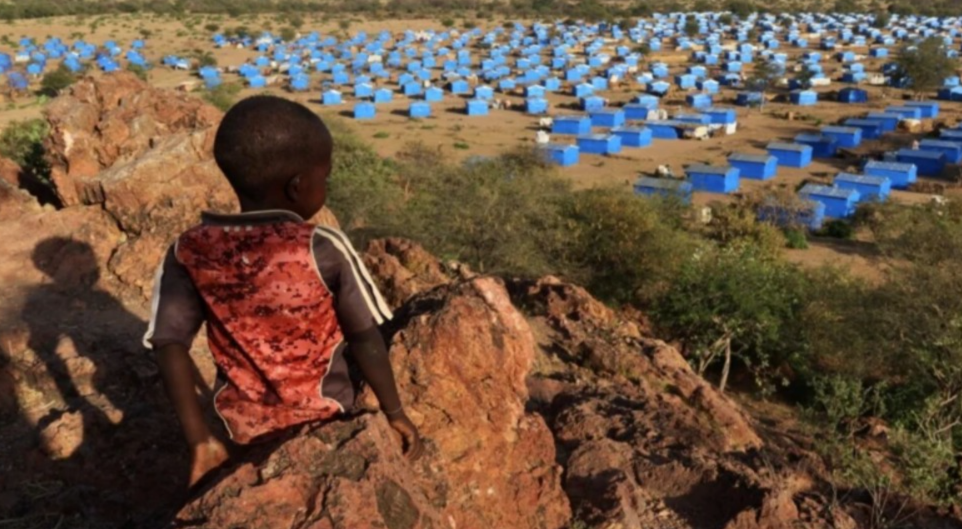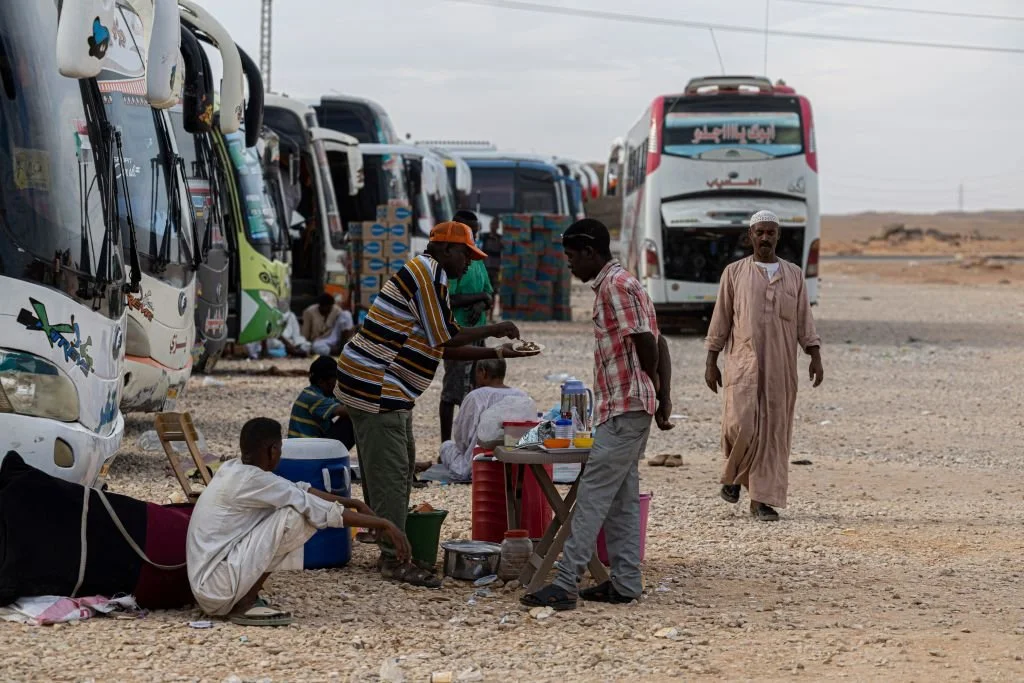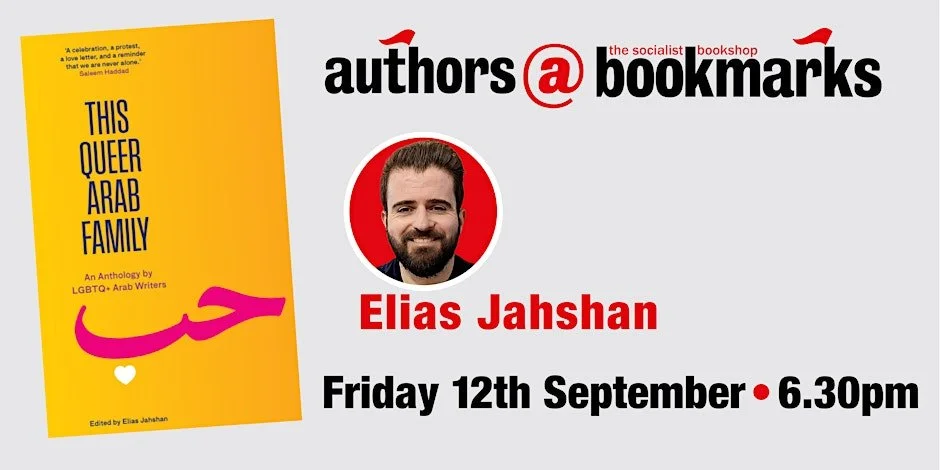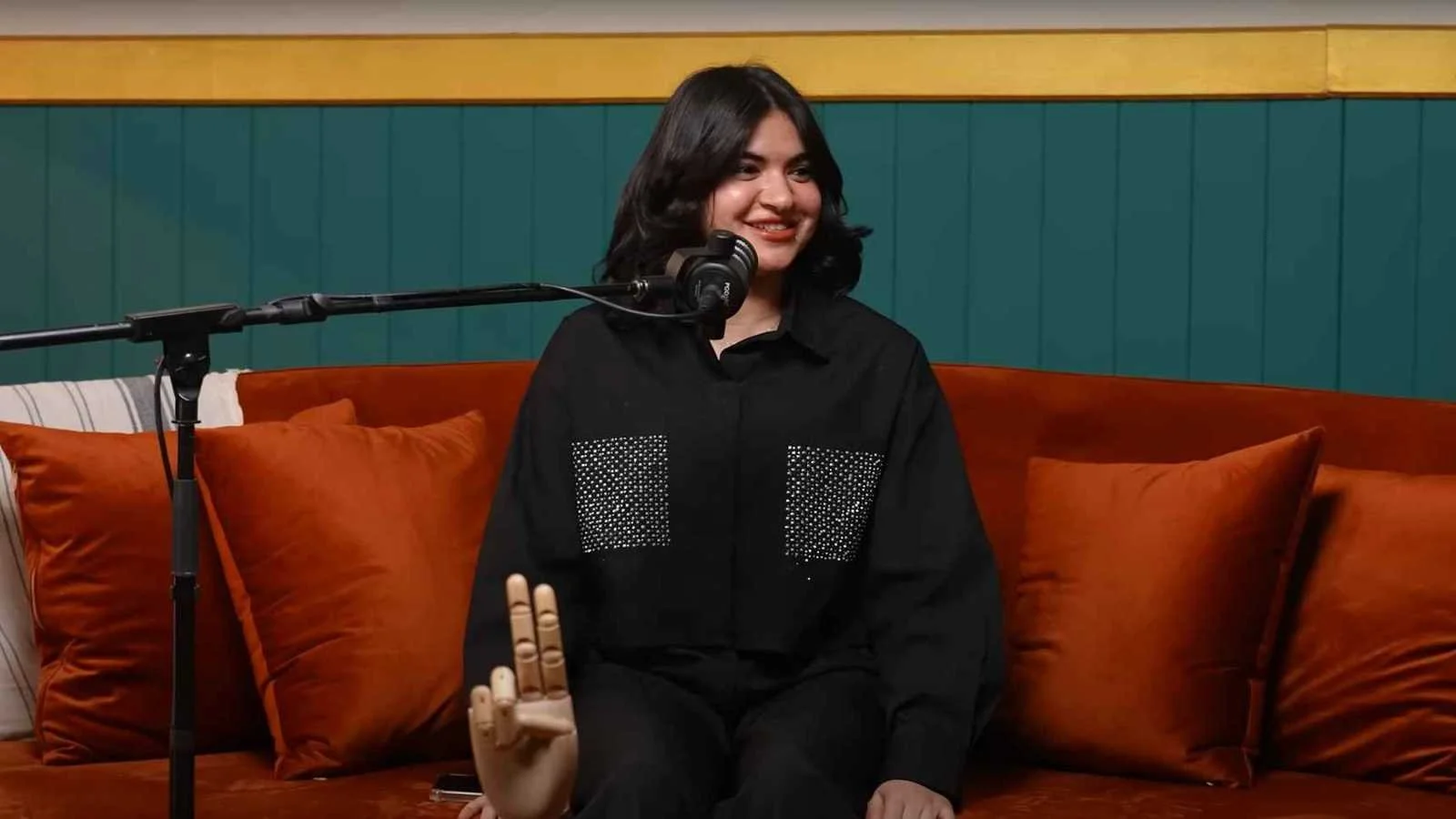July 2025
In this Newsletter:
1. Resistance Committees in El Fasher and North Darfur Emergency Rooms Issue Separate Warnings Over Worsening Humanitarian Crisis in the Besieged City.
2. Sudan Founding Coalition "Ta'sis": Formation of a Presidential Council Headed by "Hemedti" and a Government Led by Former Sovereign Council Member Mohamed Hassan Al-Ta’aishi.
3. Train Carrying Returning Sudanese Departs from Cairo Under the Sponsorship of the "Defense Industries System".
4. Egyptian-Italian Dancer Linda Martino Arrested and Charged with Publishing Indecent Content.
5. European Union Nears Approval of First Twice-Yearly Injection for HIV Prevention.
6. "This Queer Arab Family": A Landmark Contribution to Queer Arab Literature.
7. Crackdown on TikTok Content Creators Expands.
Resistance Committees in El Fasher and North Darfur Emergency Rooms Issue Separate Warnings Over Worsening Humanitarian Crisis in the Besieged City
The Resistance Committees Coordination in El Fasher and the Emergency Rooms Coordination Council in North Darfur have issued urgent humanitarian appeals, warning of a total collapse in living and health conditions inside the besieged city of El Fasher since May 2024. With most community kitchens shut down and resources depleted, residents are facing hunger, isolation, and continuous shelling amid a complete lack of government response.
Basic food shortages have reached 88%, and actual deaths due to hunger and malnutrition have already been recorded, while health conditions are rapidly deteriorating with the spread of cholera and malaria and the closure of dozens of medical facilities.
Amid this catastrophe, minorities are facing compounded risks due to their already vulnerable status and the absence of legal protection or safe support networks. Members of these communities are often denied fair access to food, shelter, and healthcare, and may face discrimination or threats of violence in an environment lacking inclusive humanitarian mechanisms. Activists stress that the escalating humanitarian crisis demands an urgent and holistic response that ensures no marginalized group is left behind, urging those from the state living abroad to take immediate action to help save lives.
Sudan Founding Coalition "Ta'sis": Formation of a Presidential Council Headed by "Hemedti" and a Government Led by Former Sovereign Council Member Mohamed Hassan Al-Ta’aishi
In a move that signals the entrenchment of political division and deepening of Sudan's complex crisis, the "Tasis" coalition announced on Saturday the formation of a presidential council and a transitional government, appointing the leader of the Rapid Support Forces, Mohamed Hamdan Dagalo "Hemedti," as president of the council, and former Sovereign Council member Mohamed Hassan El-Taishi as prime minister.
The announcement was made from the city of Nyala, just hours after an airstrike by the Sudanese army on the same city, which now serves as the headquarters of the newly formed government.
The new formation includes figures from the political and military elite, among them Abdelaziz al-Hilu as vice president, alongside El-Tahir Hajar and El-Hadi Idris, a step that effectively reproduces military alliances at the expense of a democratic and civilian path. As with previous transitional experiments, this initiative appears to lack genuine popular representation and reflects a profound disconnect from the Sudanese people's demands for justice, accountability, and radical transformation.
What raises deep concern is the presence of two competing governments in Sudan, both implicated in the bloodshed of the Sudanese people before, during, and after the revolution. The ongoing rivalry between them may result either in a military victory for one side or in a prolonged division of the country, threatening all segments of Sudanese society particularly ethnic and religious minorities. These groups face compounded levels of marginalization and structural violence and are denied even the minimum recognition in governance and reconciliation frameworks.
The exclusion of these communities from new political arrangements not only signals a continuation of systemic exclusion but also extends decades of institutional denial of identity-based violence. Their absence from the core of transition and transformation initiatives driven by armed actors with foreign backing and long-standing records of civilian bloodshed strips such projects of any credibility and exposes their failure to build a just and inclusive Sudan for all its citizens, regardless of gender or nationality.
Any political project that does not place human dignity and intersectional justice at its center is inherently fragile and incapable of achieving genuine peace or an equitable democratic future.
Train Carrying Returning Sudanese Departs from Cairo Under the Sponsorship of the
"Defense Industries System"
In a move that reflects the Sudanese army’s ongoing attempts to reshape the demographic and political landscape to serve its own agenda, the Sudanese Armed Forces organized a train journey from Cairo to the Arqeen border crossing, transporting around 1,000 Sudanese as part of the second phase of the "Raj’een" (We’re Returning) initiative, launched by the Military Industrial System affiliated with the army. Framed as a "voluntary" return, the journey was fully funded by the military and follows the army’s announcement of its "regained control" over Khartoum.
This initiative is part of a broader call for displaced citizens to return and support reconstruction efforts. However, beneath this humanitarian narrative lies a strategy aimed at reasserting military control over the civilian sphere, in the absence of guarantees for dignity and social justice a reality confirmed by returnees who reported severe shortages of water, electricity, and healthcare services.
Within this context, it is critical to acknowledge the deep impact such policies have on sexually and gender-diverse communities, who have long been excluded from national discourse during both times of peace and conflict. The complete absence of any mention of protections or safety measures for these communities within return initiatives underscores their continued structural marginalization. It also raises serious concerns about their vulnerability to heightened risks in areas dominated by military forces hostile to their existence. Reducing return efforts to logistical operations without addressing the foundational principles of inclusive and just reconstruction merely reproduces exclusion and violence in new forms. Building a truly democratic Sudan requires the full recognition of the rights of all marginalized groups including sexually and gender-diverse people and the creation of a safe and inclusive environment that upholds their dignity and ensures their active participation in shaping the nation’s future.
Egyptian-Italian Dancer Linda Martino Arrested and Charged with Publishing Indecent Content
Egyptian security forces have arrested dancer Linda, with prosecutorial authorities charging her with publishing content that violates public decency and undermines family values in Egypt.
The arrest came in response to videos she posted on her personal social media accounts, which security agencies described as containing "indecent innuendos" and featuring her in revealing clothing with a focus on "seduction and incitement to immorality," according to official investigative statements.
This case is part of a broader and ongoing trend by the Egyptian Public Prosecution to pursue female content creators for the nature of their online posts a pattern that began in 2021 with what became known as the "TikTok girls" cases. Since then, the scope of prosecutions has expanded.
Authorities frame these actions within a broader initiative to enable citizens to file complaints directly. In December 2024, the Public Prosecution launched a dedicated WhatsApp number for public reporting, following the establishment of a Cyber Monitoring Unit in 2019 tasked with tracking what it calls “violations” on social media platforms.
While such mechanisms may provide a legal avenue for citizens to safeguard their rights, most of the unit’s cases have disproportionately focused on TikTok creators particularly women raising concerns about the expansive application of Egypt’s cybercrime law, particularly clauses that criminalize content deemed to "threaten family values."
This pattern prompts critical questions about the growing securitization of women's expression and autonomy online, and how such prosecutions effectively police and punish women for engaging in artistic and expressive practices such as dance or performance.
European Union Nears Approval of First Twice-Yearly Injection for HIV Prevention
The European Medicines Agency (EMA) has recommended approval of Lenacapavir marketed as Yeytuo as the first twice-yearly injectable drug for the prevention of HIV (Human Immunodeficiency Virus).
The recommendation follows clinical trial results showing an efficacy rate exceeding 99.9% in preventing new infections.
Lenacapavir had previously received approval in the United States under the trade name Yeztugo. The European Commission is expected to formally endorse the recommendation in the coming weeks, allowing the drug to be marketed across all EU member states, as well as Norway, Iceland, and Liechtenstein.
If approved, Yeytuo will become the first long-acting preventative option for HIV in Europe, marking a major breakthrough in public health protection tools, particularly for high-risk populations.
This development also represents a significant source of hope for curbing the spread of HIV in the Global South, where up to 1.3 million new infections were reported in 2024.
"This Queer Arab Family":
A Landmark Contribution to Queer Arab Literature
The UK-based publishing house Saqi Books has announced the release of a new literary anthology titled "This Queer Family". The collection features stories by ten Arab-identifying writers, exploring the concept of family in cultures and societies that often exclude queer individuals from traditional familial structures.
The anthology is edited by Palestinian-Lebanese-Australian writer Elias Jahshan, and is set to be released in both print and digital formats on September 18, 2025.
Early reviews have described the book as a significant contribution to queer Arab literature, offering a diverse and honest reflection on the lives of those marginalized within dominant social frameworks.
Crackdown on TikTok Content Creators Expands
In late July 2025, Egypt's Ministry of Interior launched an expanded crackdown on TikTok content creators. The campaign was preceded by public remarks from the head of the Actors’ Syndicate, who criticized influencers, stating: "Acting is not a profession open to everyone, and producers will not be allowed to cast influencers without obtaining official licenses. Otherwise, fines of up to one million Egyptian pounds will be imposed." He added, "We didn’t spend years studying and dedicating our lives to this profession just to hand it over to TikTok celebrities."
Shortly after, the latest wave of arrests began with the detention of influencer “Suzy El- Ordoneya,” who was charged with publishing content deemed “offensive to public decency” and “violating Egyptian family values.” Similar charges were brought against other creators, including “Om Sajda” and “Om Mekka,” who were also accused of using vulgar language incompatible with societal norms, in addition to allegations concerning the sources of their income.
This targeted crackdown on low-income female content creators highlights deeper patriarchal and class dynamics shaping public policy, particularly in terms of control over women’s bodies, finances, visibility, and opportunities for upward mobility.







